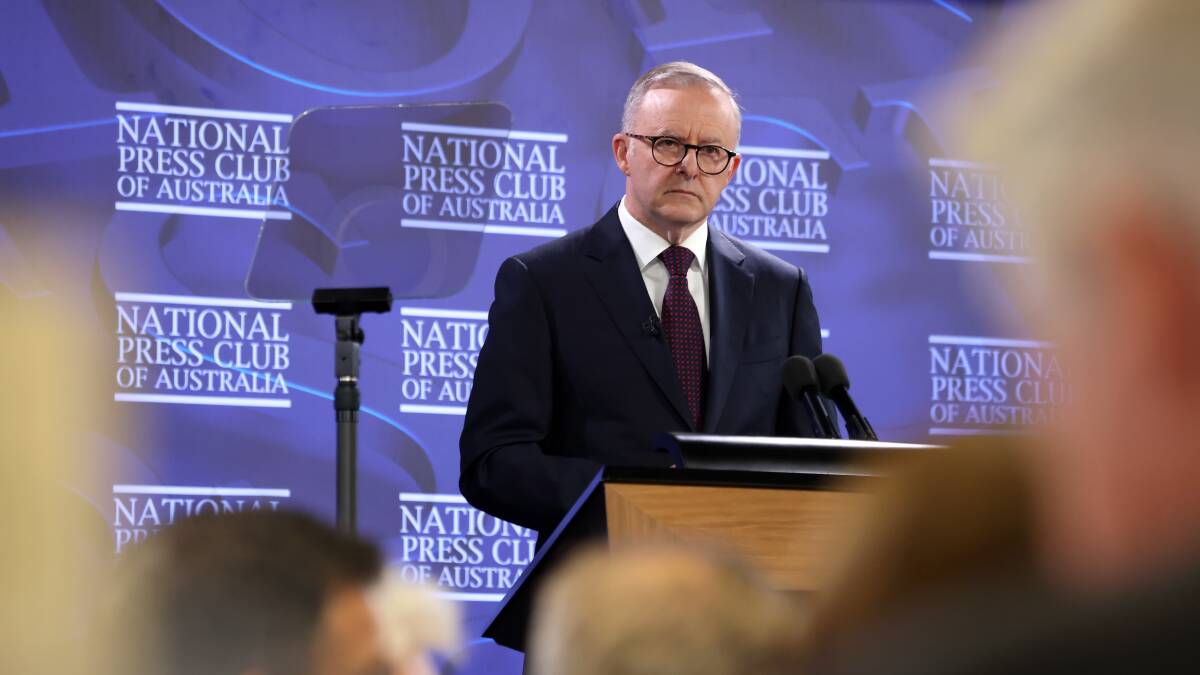With at least 19* women killed by violence already in 2025, where is gender-based violence on the agenda in the new parliament?
By: Hannah Fearnside
Posted on
Now is the time for the new Labor government to work with the new parliament and the community to ensure family, domestic and sexual violence stays on the agenda in the 48th parliament
As the dust settles on the landslide Labor election victory, Prime Minister Anthony Albanese addressed the National Press Club, outlining his priorities for his second term in office in his first major speech since the election. In just over an hour, Albanese discussed his plans to bring together experts later this year to brainstorm ideas for economic reform, whether Gen Z would change the way Labor communicates its policies and the possibility of further defence spending.
However, much like the election campaign, family, domestic and sexual violence was noticeably missing from Albanese’s press club address. Greater opportunity for women was recognised as a ‘fundamental priority for our economy and society.’ This was despite widespread coverage of findings from the Australian Institute of Family Studies, Ten to Men study, which reported that 1 in 3 men had used intimate partner violence, as an adult.
It is heartening to see, for the first time in Australian history, that there will be more women than men in federal cabinet. Some research indicates that some female legislators prioritise policy issues that impact women; however, a higher representation of women in politics does not automatically mean more feminist policy. Research also indicates that high rates of gender equality do not equal safety for women. Gender equality must be one of a multi-pronged approach in the prevention of family and domestic violence.
So far, Labor has promised to…
- Invest $8.6 million in the Innovative Perpetrator Response program.
- Spend $366.9 million to extend the National Partnership Agreement.
- Fund $82.4 million to strengthen responses to high-risk and serial perpetrators of domestic and family violence.
- Invest $81.3 million in strengthening child-centric, trauma-informed support services.
- Spend $6 million on innovative approaches to addressing perpetrator violence.
- Legislate universal mobile coverage across Australia, requiring basic voice and SMS coverage nationwide.
So, what should the government prioritise for gender-based violence in its second term?
There is no shortage of clear, urgent priorities from communities and the sector when it comes to addressing gender-based violence. The Working with Women Alliance has outlined a comprehensive set of actions for the 48th Australian Parliament to consider, all aimed at strengthening the national response and support systems for women and young people. To attract and retain skilled professionals, the Alliance is calling for a HECS-HELP Debt Forgiveness Scheme for graduates in Social Work and Human Services, building on the government’s existing 20% student loan discount. It also advocates for a national rollout of the Wisdom in Practice program, a frontline training initiative that equips workers with the skills needed to support survivors of violence effectively.
Significant investment is also needed in services. The Alliance proposes allocating $228.6 million to trauma-informed sexual violence services, particularly those supporting children and young people. To ensure accountability and transparency, they recommend mandatory reporting on the use and impact of government funding via the Domestic, Family and Sexual Violence Commission.
Recognising the economic barriers survivors often face, the Alliance urges an increase to the Leaving Violence Payment—raising it to $7,000 with more targeted eligibility criteria. It also calls for a rapid review to assess whether current and projected funding meets the real demand across domestic and sexual violence services.
Further policy actions include implementing recommendations from the Parliamentary Inquiry into Financial Services, particularly those related to financial abuse, and mandating the use of alternative reports in legal and policing contexts to better track and prosecute repeat offenders. Lastly, the Alliance recommends developing a National Youth-Based Text Service for Intimate Partner Violence to ensure young people can access support in ways that suit their communication needs.
With the first sitting of the new parliament fast approaching, there have been some promising signs of political momentum in the effort to address gender-based violence and promote respectful relationships. Encouragingly, the government has committed funding to Teach Us Consent’s Promoting Consent Initiative, a campaign that features prominent young Australians engaging in honest, vulnerable conversations about consent—an important step in shifting cultural norms and educating the next generation.
Political leaders have also begun to speak out with urgency. ACT Independent Senator David Pocock has called for stronger measures to protect community safety, specifically advocating for increased, long-term funding for frontline domestic violence specialist services and men’s behaviour change programs. Similarly, Greens leader Larissa Waters has urged the government to act swiftly and decisively, calling for appropriate investment in both support services and prevention initiatives. These developments reflect a growing consensus that sustained action and funding are critical to creating real change.
Now is the time for the new Labor government to work with the new parliament and the community to ensure family, domestic and sexual violence stays on the agenda in the 48th parliament.
*Correct at the time of the The Working with Women Alliance government brief.

